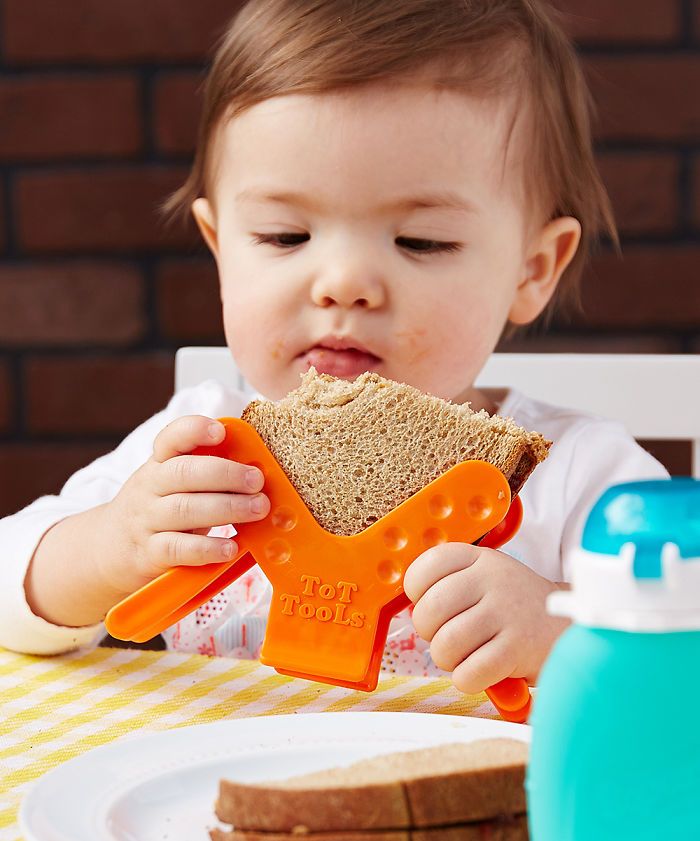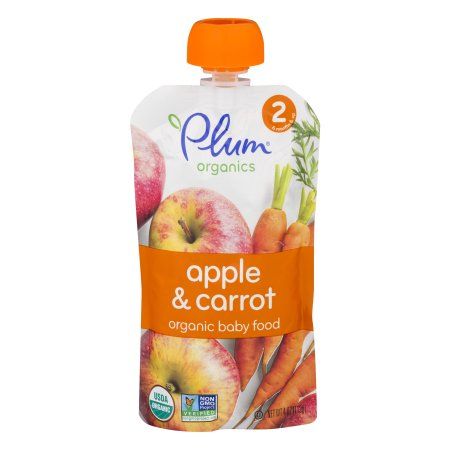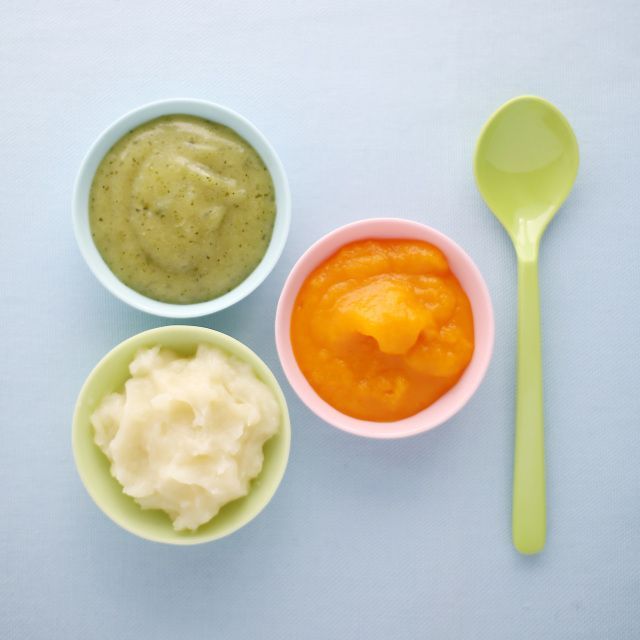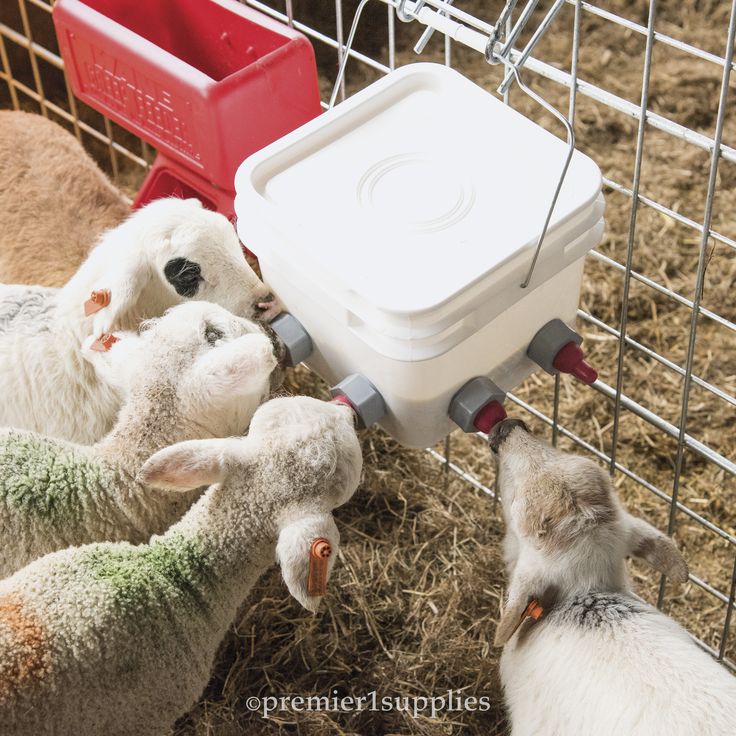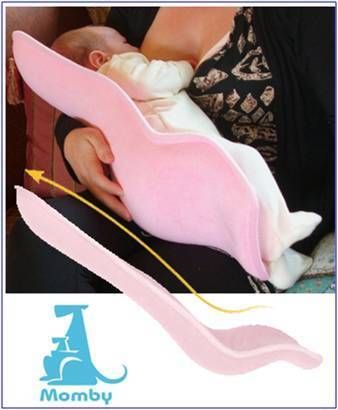Baby foods to relieve constipation
Are There Baby Foods that Help with Constipation?
While parenting brings many surprises, one of them is likely how much you’ll think about poop, or lack thereof, especially during that first year. But here you are worrying about your baby’s digestive tract and convinced that they’re constipated.
If you’ve recently introduced your baby to solid food, then your worries may be on target: solid foods can put a strain on your baby’s developing digestive tract and cause constipation. But there are things you can do to help!
Before you begin treating constipation you should determine if there is really an issue at all. So here’s the scoop on poop and how to tell if your worries are founded and your baby is constipated.
Breastfed babies
During the first few weeks, you’ll find yourself changing diapers with alarming regularity. Figure in every feed or so.
But don’t despair, because by the time your baby reaches 6 weeks old, they may have a bowel movement only once or twice a day. On the other hand, they may have one only every 7–10 days. (Yep, the frequency really can vary that much.)
The poop is yellow, soft, runny and sometimes lumpy and the smell isn’t unpleasant.
Formula-fed babies
A newborn, formula-fed baby typically poops up to five times a day. At about 6 to 8 weeks, this may decrease to around once a day.
Formula-fed babies have poop that is a camel to brown color with a thicker consistency, more like paste. Most likely, the less-than-aromatic smell means you’ll hermetically seal soiled diapers before you toss them into the garbage.
Signs that your baby is constipated
You’ve noticed that your baby’s tummy isn’t following the schedule that you got used to. Could it be constipation? Here are the signs that could confirm your suspicions:
- You notice that they cry or fuss while they’re trying to have a hard bowel movement.
- The poop, when it does come, is like hard pellets.
- You notice streaks of red blood in the hard poop.

While it’s not easy for a baby on a liquid diet to become constipated, trouble can start when you start introducing your baby to solid foods at around 6 months. Here’s why:
New food types
Think of it as a learning curve: Your baby’s body is learning how to cope with a new kind of food to digest as they move away from their full liquid diet and you need to soften the learning curve. (Pardon the irresistible pun.)
Changes to fluid intake
Decreased fluids will make your baby’s poop harder and more difficult to push out. If they’ve started solids, they may need to up their fluid intake to offset the solid food. And if your baby is teething or feeling unwell, it can also lead to them taking in less fluid than usual.
Lack of fiber
Even though they’re just starting out, babies’ tummies work like ours. While initially the move to solids that have fiber (from breast milk or formula, which don’t) can cause temporary constipation, their tummies will adjust.
Make sure to monitor your baby’s fiber intake and pair it with plenty of hydration for a smooth ride the same way that you monitor yours.
OK, so you’ve confirmed that your baby is constipated. The next step is helping to alleviate the strain on their developing digestive system.
Remember that you can keep offering these foods as your baby develops into a toddler and beyond. In fact, there is little research or evidence to support specific foods (including high fiber ones) in treating or preventing constipation in infants. Most of these recommendations are based on evidence for older adults and children.
Keep in mind that good practice when introducing solids is to introduce foods as single ingredients. That way, if your baby is allergic to certain foods, you’ll be able to more easily trace the source.
If your little one hasn’t tried these foods before, don’t rush the process. Test out one at a time and then introduce combinations once you’re confident they’re well tolerated.
- Back to basics. Give your baby’s digestive tract a break by feeding them mashed avocado or sweet potato purée. These are easy to digest and may give your baby the kick start they need.
- B vegetables. Think broccoli, Brussels sprouts, and beans. Purée these for a meal filled with fiber.
- P fruits. Your grandmother was right — bring on the prunes for quick work. A purée that includes a mix of prunes plus pears, plums, or peaches should work magic. Try subbing the prunes with dates for a change.
- Bring on the fiber. If your baby is over 8 months, you can offer them whole grains like oatmeal, fiber-rich cereals, whole wheat pasta, and brown rice.
- Water intake. Until 6 months an exclusively breastfed or formula-fed baby doesn’t need to drink water. Above this age, you can introduce small amounts of water.
Plums and pears with cinnamon
Cut 2 or 3 pears and plums into small pieces.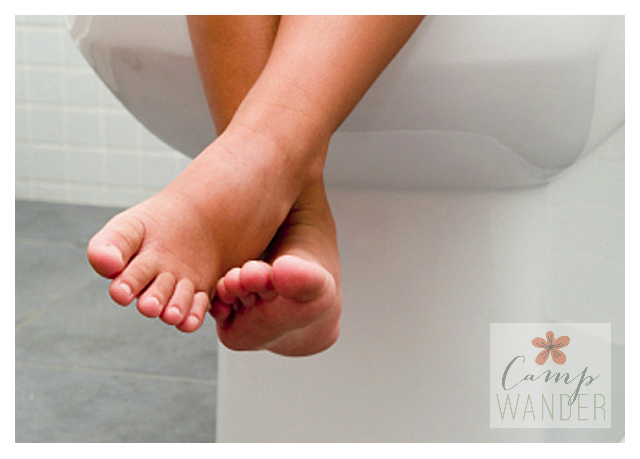 Place in a saucepan with a small amount of water and simmer until soft. Add in a sprinkle of cinnamon. Blend thoroughly.
Place in a saucepan with a small amount of water and simmer until soft. Add in a sprinkle of cinnamon. Blend thoroughly.
Sweet potato with apple and peach
Cut half a sweet potato, one apple, and half a peach into small pieces. Place in steamer basket and cook until tender. Blend until smooth.
Spinach and apple purée
Chop two apples into small chunks and cook in saucepan with about 1/2 cup of water. When they’re tender, add about 1 cup of spinach and cook another 2 to 3 minutes. Purée until smooth. Can be seasoned with cinnamon and ginger.
Some sources suggest prune, pear, and apple juices help to increase the water content in poop and can ease constipation.
However, the American Academy of Pediatrics recommends steering clear of fruit juice for children younger than 1 year old. You can stick with these fruits as purées for similar effects.
What is it about prune juice? The high levels of sorbitol and phenolic substances in prune juice and dried plums act as a laxative and diuretic properties. So if your child is over 1 year old, you can use small amounts of prune juice to encourage their system to run.
So if your child is over 1 year old, you can use small amounts of prune juice to encourage their system to run.
Some studies show that constipation may affect as much as 30 percent of children. If your child is part of the unlucky statistic, here are some foods that you may want to give them smaller amounts of until it passes:
- bananas
- dairy products such as cheese and yogurt
- low fiber foods like white rice, white bread, and white pasta
If you’re like most parents, you’ll be up for whatever you can try to help your baby get comfortable fast. Here are a few tricks that you can use to ease your baby’s constipation:
- Warm baths. These can relax those abdominal muscles and get them working.
- Exercise. Lay your baby on their back and push their legs alternately as if they’re cycling a bike. Alternatively, hold their knees and feet together and push their feet towards their belly.
- Massage.
 Use your fingertip to draw clockwise circles on your baby’s stomach.
Use your fingertip to draw clockwise circles on your baby’s stomach.
If you see that despite your home remedies, your baby still is having hard stools or hasn’t pooped after 2 or 3 days from their last hard stool, then contact your pediatrician. Especially if you consistently notice blood in their poop or your baby is extremely irritable and appears to be in pain.
While dealing with your baby’s toilet issues may seem a tad unsavory, you’ll soon be so used to it, that you’ll find yourself sharing your insights over coffee with other parents. And don’t be shy about sharing the yummy food combinations you discover to keep things moving.
Are There Baby Foods that Help with Constipation?
While parenting brings many surprises, one of them is likely how much you’ll think about poop, or lack thereof, especially during that first year. But here you are worrying about your baby’s digestive tract and convinced that they’re constipated.
If you’ve recently introduced your baby to solid food, then your worries may be on target: solid foods can put a strain on your baby’s developing digestive tract and cause constipation. But there are things you can do to help!
But there are things you can do to help!
Before you begin treating constipation you should determine if there is really an issue at all. So here’s the scoop on poop and how to tell if your worries are founded and your baby is constipated.
Breastfed babies
During the first few weeks, you’ll find yourself changing diapers with alarming regularity. Figure in every feed or so.
But don’t despair, because by the time your baby reaches 6 weeks old, they may have a bowel movement only once or twice a day. On the other hand, they may have one only every 7–10 days. (Yep, the frequency really can vary that much.)
The poop is yellow, soft, runny and sometimes lumpy and the smell isn’t unpleasant.
Formula-fed babies
A newborn, formula-fed baby typically poops up to five times a day. At about 6 to 8 weeks, this may decrease to around once a day.
Formula-fed babies have poop that is a camel to brown color with a thicker consistency, more like paste. Most likely, the less-than-aromatic smell means you’ll hermetically seal soiled diapers before you toss them into the garbage.
Most likely, the less-than-aromatic smell means you’ll hermetically seal soiled diapers before you toss them into the garbage.
Signs that your baby is constipated
You’ve noticed that your baby’s tummy isn’t following the schedule that you got used to. Could it be constipation? Here are the signs that could confirm your suspicions:
- You notice that they cry or fuss while they’re trying to have a hard bowel movement.
- The poop, when it does come, is like hard pellets.
- You notice streaks of red blood in the hard poop.
While it’s not easy for a baby on a liquid diet to become constipated, trouble can start when you start introducing your baby to solid foods at around 6 months. Here’s why:
New food types
Think of it as a learning curve: Your baby’s body is learning how to cope with a new kind of food to digest as they move away from their full liquid diet and you need to soften the learning curve. (Pardon the irresistible pun.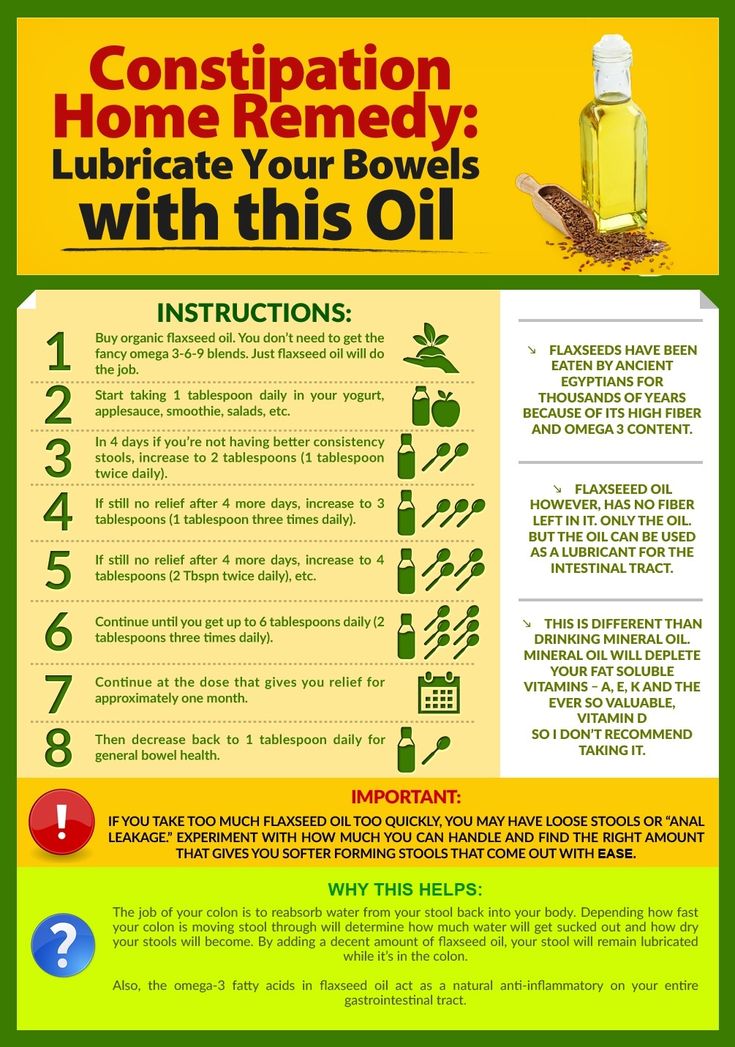 )
)
Changes to fluid intake
Decreased fluids will make your baby’s poop harder and more difficult to push out. If they’ve started solids, they may need to up their fluid intake to offset the solid food. And if your baby is teething or feeling unwell, it can also lead to them taking in less fluid than usual.
Lack of fiber
Even though they’re just starting out, babies’ tummies work like ours. While initially the move to solids that have fiber (from breast milk or formula, which don’t) can cause temporary constipation, their tummies will adjust.
Make sure to monitor your baby’s fiber intake and pair it with plenty of hydration for a smooth ride the same way that you monitor yours.
OK, so you’ve confirmed that your baby is constipated. The next step is helping to alleviate the strain on their developing digestive system.
Remember that you can keep offering these foods as your baby develops into a toddler and beyond. In fact, there is little research or evidence to support specific foods (including high fiber ones) in treating or preventing constipation in infants. Most of these recommendations are based on evidence for older adults and children.
Most of these recommendations are based on evidence for older adults and children.
Keep in mind that good practice when introducing solids is to introduce foods as single ingredients. That way, if your baby is allergic to certain foods, you’ll be able to more easily trace the source.
If your little one hasn’t tried these foods before, don’t rush the process. Test out one at a time and then introduce combinations once you’re confident they’re well tolerated.
- Back to basics. Give your baby’s digestive tract a break by feeding them mashed avocado or sweet potato purée. These are easy to digest and may give your baby the kick start they need.
- B vegetables. Think broccoli, Brussels sprouts, and beans. Purée these for a meal filled with fiber.
- P fruits. Your grandmother was right — bring on the prunes for quick work. A purée that includes a mix of prunes plus pears, plums, or peaches should work magic.
 Try subbing the prunes with dates for a change.
Try subbing the prunes with dates for a change. - Bring on the fiber. If your baby is over 8 months, you can offer them whole grains like oatmeal, fiber-rich cereals, whole wheat pasta, and brown rice.
- Water intake. Until 6 months an exclusively breastfed or formula-fed baby doesn’t need to drink water. Above this age, you can introduce small amounts of water.
Plums and pears with cinnamon
Cut 2 or 3 pears and plums into small pieces. Place in a saucepan with a small amount of water and simmer until soft. Add in a sprinkle of cinnamon. Blend thoroughly.
Sweet potato with apple and peach
Cut half a sweet potato, one apple, and half a peach into small pieces. Place in steamer basket and cook until tender. Blend until smooth.
Spinach and apple purée
Chop two apples into small chunks and cook in saucepan with about 1/2 cup of water. When they’re tender, add about 1 cup of spinach and cook another 2 to 3 minutes.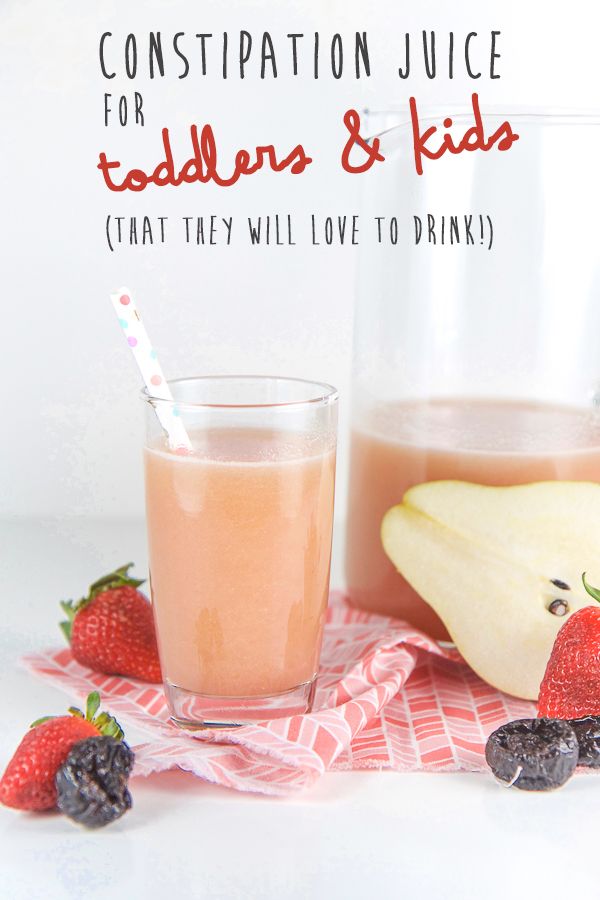 Purée until smooth. Can be seasoned with cinnamon and ginger.
Purée until smooth. Can be seasoned with cinnamon and ginger.
Some sources suggest prune, pear, and apple juices help to increase the water content in poop and can ease constipation.
However, the American Academy of Pediatrics recommends steering clear of fruit juice for children younger than 1 year old. You can stick with these fruits as purées for similar effects.
What is it about prune juice? The high levels of sorbitol and phenolic substances in prune juice and dried plums act as a laxative and diuretic properties. So if your child is over 1 year old, you can use small amounts of prune juice to encourage their system to run.
Some studies show that constipation may affect as much as 30 percent of children. If your child is part of the unlucky statistic, here are some foods that you may want to give them smaller amounts of until it passes:
- bananas
- dairy products such as cheese and yogurt
- low fiber foods like white rice, white bread, and white pasta
If you’re like most parents, you’ll be up for whatever you can try to help your baby get comfortable fast.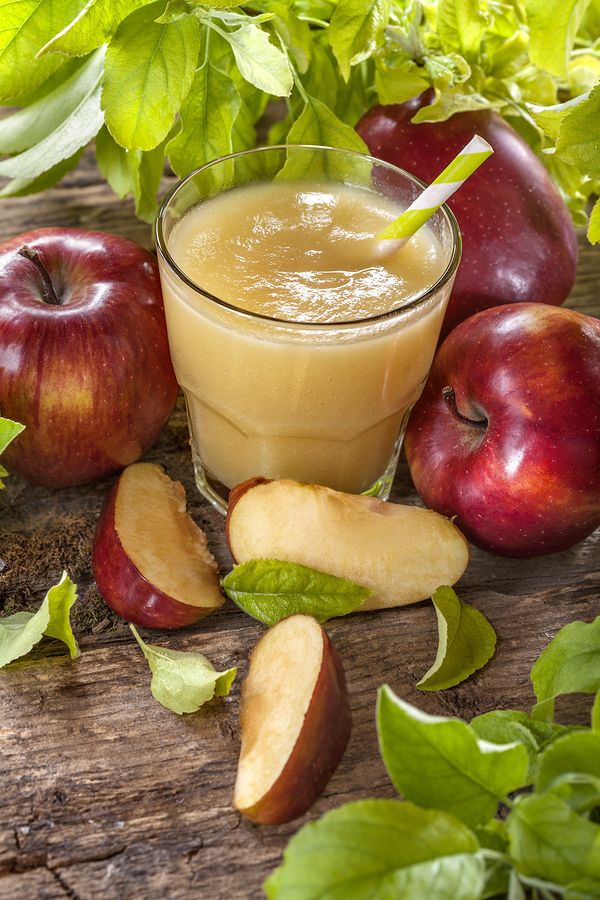 Here are a few tricks that you can use to ease your baby’s constipation:
Here are a few tricks that you can use to ease your baby’s constipation:
- Warm baths. These can relax those abdominal muscles and get them working.
- Exercise. Lay your baby on their back and push their legs alternately as if they’re cycling a bike. Alternatively, hold their knees and feet together and push their feet towards their belly.
- Massage. Use your fingertip to draw clockwise circles on your baby’s stomach.
If you see that despite your home remedies, your baby still is having hard stools or hasn’t pooped after 2 or 3 days from their last hard stool, then contact your pediatrician. Especially if you consistently notice blood in their poop or your baby is extremely irritable and appears to be in pain.
While dealing with your baby’s toilet issues may seem a tad unsavory, you’ll soon be so used to it, that you’ll find yourself sharing your insights over coffee with other parents. And don’t be shy about sharing the yummy food combinations you discover to keep things moving.
Infant formula for constipation: which one to choose
09/23/2019 Reading time: 5 min 46891
Contents of article
- Childhood GI disorder
- Symptoms of constipation
- Constipation during breastfeeding
- Causes of constipation
- Peculiarities of children's diet
- Formula selection for formula feeding and constipation
New parents have many sleepless nights and hectic days. And all because the baby is worried about something. Digestive problems are among the most common causes of yelling and crying. The gastrointestinal tract in newborns is just being formed, so there may be colic, flatulence, regurgitation and defecation disorders. Every fifth child suffers from constipation.
Every fifth child suffers from constipation.
Childhood GI disorder
More often, a violation of the gastrointestinal tract occurs in children who are on artificial or mixed feeding. This is due to the fact that the baby's digestive system in the first year of life is prepared by nature for the assimilation of mother's milk, and infant formulas are created according to the model of breast milk and are only as close as possible to its composition. However, sometimes it also happens that a violation of the gastrointestinal tract occurs in infants. There can be several reasons - from the mother's unsuitable diet to nervous disorders. What to do if a newborn has constipation? First of all, go to the doctor.
What frequency and consistency of stool is normal for a child?
| Breastfeeding | On artificial feeding |
|---|---|
| stool frequency - from 1-2 to 5-7 times a day | stool can be 1-3 times a day |
| yellow color | denser |
| homogeneous, mushy | darker |
| without pathological impurities (mucus, blood streaks) | |
| with a sour smell | |
| white lumps (blotches) are allowed | |
The stool of children in the first year of life changes and may be thinner or harder:
- during the first weeks of life
- when switching to artificial feeding
- when changing milk formula
- during the introduction of complementary foods.

Symptoms of constipation
- Bowel emptying irregularly (less than once every 36 hours).
- The feces are dry and hard, which means that later the child may try to retain feces, since the last time a bowel movement caused him pain (relevant for older children).
- The baby pushes hard, pulls his legs up to his chest, but his efforts do not give any results.
- The baby is naughty, frowns, cries when trying to empty the intestines.
- The child has trouble sleeping and refuses to eat.
- There is bloating.
Other conditions can lead to similar symptoms, so you should always consult a doctor to make a diagnosis.
Constipation during breastfeeding
The quantity (and quality) of mother's milk is affected not only by mother's nutrition, but also by the state of her nervous system and lifestyle*. It is, of course, very difficult not to be nervous, but a parent can manage her lifestyle. A woman cannot breastfeed normally if she is in constant stress and nervous exhaustion. The less time a mother spends on household chores, the better for her, and therefore for the newborn. So all household duties can be safely delegated to the second parent, grandparents, other relatives, friends or hired nannies. It is important to pay attention to nutrition:
A woman cannot breastfeed normally if she is in constant stress and nervous exhaustion. The less time a mother spends on household chores, the better for her, and therefore for the newborn. So all household duties can be safely delegated to the second parent, grandparents, other relatives, friends or hired nannies. It is important to pay attention to nutrition:
- Be sure to include in the daily menu at least half a kilogram of various (preferably fresh) fruits, vegetables and berries, as well as other foods and dishes containing fiber.
- No matter how trite it may sound, but drink enough liquid during the day (1.5-2 liters).
You can understand what diet is suitable for mom by the reactions of the child. If in doubt, but really want to eat something special, eat a little and see how the baby's digestion reacts. If the baby does not have reddening of the skin and rash, there are no problems with the stool, there are no colic and constipation, then the chosen dish is quite suitable *. But strict restrictive diets of a nursing woman without special need (individual allergic reactions to food and other food intolerances) are not allowed. For the prevention of nutritional deficiencies, both in her and in the child.
But strict restrictive diets of a nursing woman without special need (individual allergic reactions to food and other food intolerances) are not allowed. For the prevention of nutritional deficiencies, both in her and in the child.
Causes of constipation
- Immaturity of the digestive organs. Due to the fact that the gastrointestinal tract of the newborn is only adapting to new conditions, there may be various functional failures in its work.
- Immaturity of the nervous system. Insufficient maturity of the baby's nervous system prevents him from correctly recognizing signals about the need to defecate.
- Somatic diseases. Rare pathologies include dolichosigma (an increase in the length of the sigmoid colon), lactase deficiency (absence or insufficient amount of enzymes to break down lactose), Hirschsprung's disease (accompanied by impaired innervation in the intestine). Colds and viral diseases can cause constipation, leading to dehydration of the child's body.
 Also, constipation can be one of the manifestations of hypothyroidism, rickets, liver disease, myasthenia gravis, and some other disorders.
Also, constipation can be one of the manifestations of hypothyroidism, rickets, liver disease, myasthenia gravis, and some other disorders. - Features of nutrition. If a child is breastfed, then the mother's malnutrition can affect the work of his gastrointestinal tract. Doctors recommend that lactating women exclude confectionery, fatty broths, cheeses, nuts from the diet. In artificers, constipation can be caused by a lack of fluid. Also, a sharp change in the brand of the mixture can lead to violations in this area.
- Taking certain medications. Constipation may be a reaction to the treatment of mother or baby with antibiotics, anticonvulsants and antispasmodics.
- Psychological problems. Children often suffer from constipation, whose parents are constantly in nervous tension, often get irritated, violently solve some family problems.
Peculiarities of children's diet
All pediatricians in the world agree that there is no better food for a baby than mother's milk. Dr. Komarovsky gives such advantages of breastfeeding as:
Dr. Komarovsky gives such advantages of breastfeeding as:
- optimum food temperature;
- perfect purity of food;
- minimal risk of allergic reactions, gastrointestinal disorders;
- the presence in milk of additional useful substances necessary for the full development of the child's body**.
And the composition of mother's milk changes over time, and not for the worse. The older the child, the higher the percentage of fat content and the amount of vitamins. This food is perfect for your baby**.
Long-term breastfeeding will not only benefit the baby, but also the mother: a 2002 Collaborative Group Study on Hormonal Factors in Breast Cancer found that breastfeeding reduces the risk of female reproductive system and breast cancer***. However, not all women are able to breastfeed their babies. If the mother cannot feed the baby with her own milk, you just need to choose the right mixture for the newborn together with the pediatrician.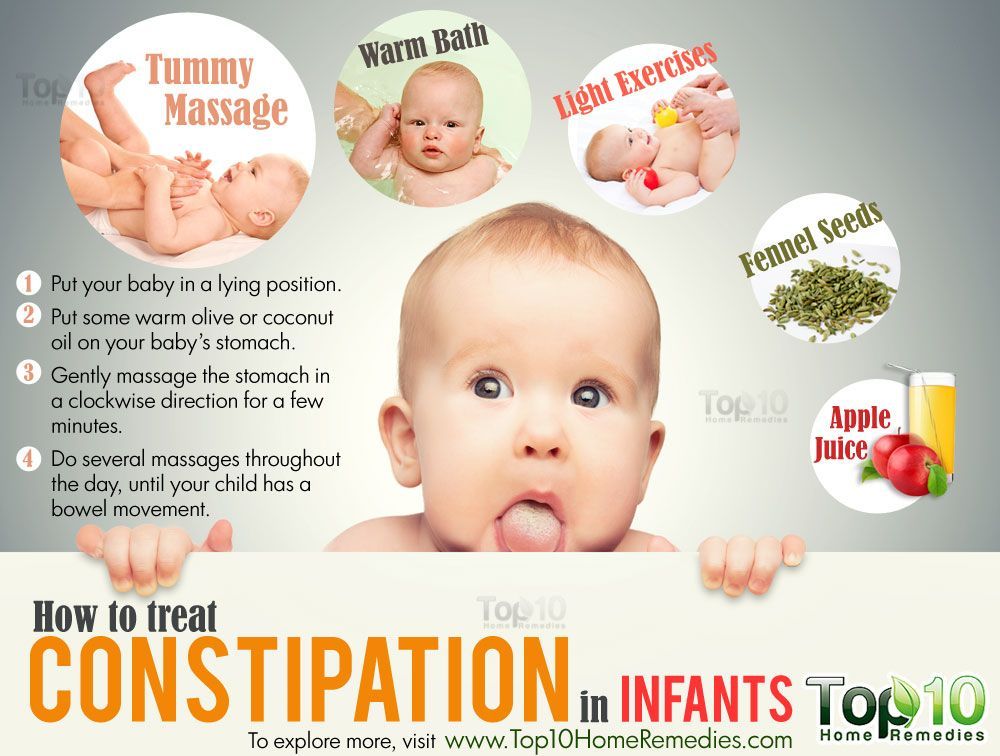 Fortunately, the modern market offers a lot of options for artificial feeding.
Fortunately, the modern market offers a lot of options for artificial feeding.
Formula selection for formula feeding and constipation
Constipation in a newborn with artificial feeding is a fairly common problem, which can be solved with the help of a properly selected mixture (after consultation with a specialist).
Fermented milk mixtures. Such mixtures are prescribed for therapeutic and prophylactic purposes. The laxative effect is given by the special composition of the mixture, which is obtained by fermenting it with lactic acid bacteria. Substances that are released during lactic acid fermentation cause increased intestinal motility and thus prevent constipation. An example of such a mixture is Nutrilak Premium Sour Milk. The product additionally contains a probiotic complex of live bifidobacteria and lactobacilli, which normalize the intestinal microflora and improve digestion.
Anti-reflux mixtures.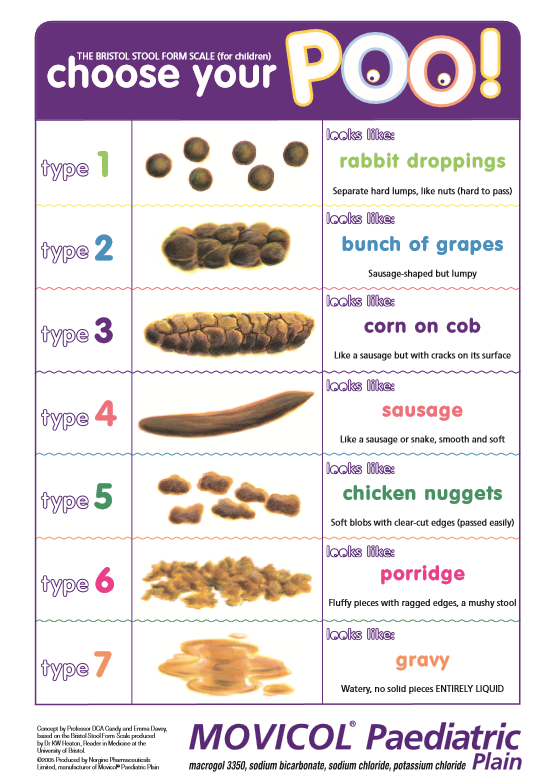 These mixtures usually contain a natural ingredient - locust bean gum (natural thickener). Dietary fibers of natural locust bean gum, passing through the intestines, stimulate peristalsis and make the baby's stool soft and with physiological frequency. This ingredient can help eliminate not only constipation, but also regurgitation. Such mixtures may contain other components that aid in the digestion of food, such as polyunsaturated fatty acids and whey protein. An example of a blend is Nutrilak Antireflux.
These mixtures usually contain a natural ingredient - locust bean gum (natural thickener). Dietary fibers of natural locust bean gum, passing through the intestines, stimulate peristalsis and make the baby's stool soft and with physiological frequency. This ingredient can help eliminate not only constipation, but also regurgitation. Such mixtures may contain other components that aid in the digestion of food, such as polyunsaturated fatty acids and whey protein. An example of a blend is Nutrilak Antireflux.
Remember that in the first year of life, a child is shown only special adapted milk formulas, which are almost identical in composition to human milk. They contain vitamins and minerals, which are selected taking into account the age and needs of the baby ****. You can choose the right mixture together with the pediatrician or on your own, carefully introducing the new composition into the baby's diet and carefully observing the reactions of the gastrointestinal tract. Most modern mixtures are created taking into account the characteristics of the child's body, enriched with probiotics and other beneficial substances, and therefore are easily absorbed. The main thing is to choose the right mixture, choose a natural and safe composition without the addition of preservatives, dyes and artificial substances.
Most modern mixtures are created taking into account the characteristics of the child's body, enriched with probiotics and other beneficial substances, and therefore are easily absorbed. The main thing is to choose the right mixture, choose a natural and safe composition without the addition of preservatives, dyes and artificial substances.
*E. O. Komarovsky - The beginning of your child's life
**E. O. Komarovsky - 365 tips for the first year of your child's life
***Collaborative Group on Hormonal Factors in Breast Cancer. Lancet. 2002
**** Elena Dobrova - Baby food. Recipes, tips, advice
(2 ratings; article rating 3.5)
8 Best Mixtures for Constipation and Colic for Newborns - Ranking 2022
In the first months of life, the baby's digestive system is extremely unstable and receptive to nutrition.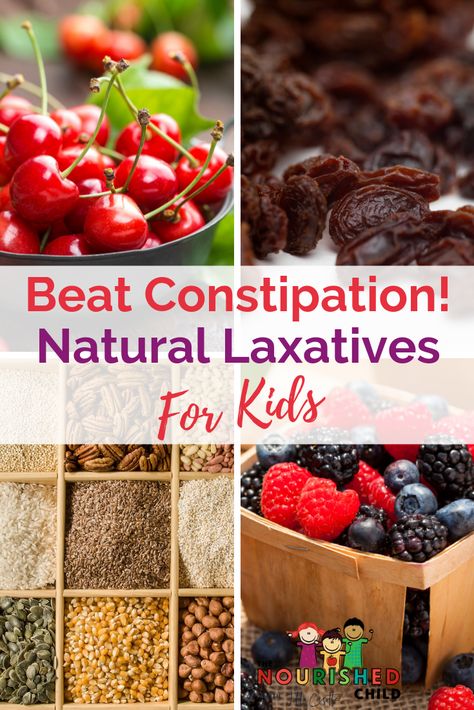 Therefore, when choosing mixtures as a supplement or alternative to breast milk, it is important to choose high-quality, proven products that help normalize stools. The most common cause under the age of one year is colic, constipation. But drugs should only be used as a last resort. Parents will be able to come to the aid of the best mixtures for constipation and colic for newborns, which are approved by pediatricians, experts. Only reliable manufacturers with certified products were included in the 2022 rating. Based on reviews and comparative analysis, the review will present fermented milk and preventive infant formulas with probiotics, prebiotics. Learn more about each nominee and the determining selection criteria below.
Therefore, when choosing mixtures as a supplement or alternative to breast milk, it is important to choose high-quality, proven products that help normalize stools. The most common cause under the age of one year is colic, constipation. But drugs should only be used as a last resort. Parents will be able to come to the aid of the best mixtures for constipation and colic for newborns, which are approved by pediatricians, experts. Only reliable manufacturers with certified products were included in the 2022 rating. Based on reviews and comparative analysis, the review will present fermented milk and preventive infant formulas with probiotics, prebiotics. Learn more about each nominee and the determining selection criteria below.
Contents
Mixture for constipation and colic for newborns which company is better to choose
You can use special baby formulas for colic and constipation not only in case of artificial feeding, but also as an additional food for breastfeeding.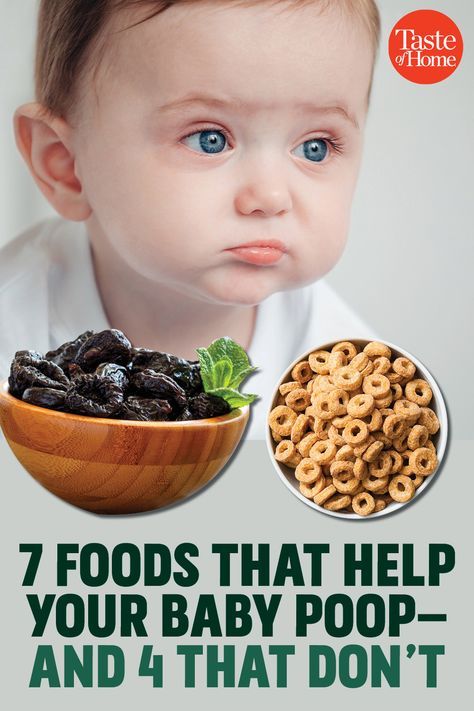 Many well-known manufacturing companies have such products, but the following ones were able to get into the fresh rating:
Many well-known manufacturing companies have such products, but the following ones were able to get into the fresh rating:
- Kabrita is a trademark of the Dutch company Ausnutria. Factories produce not only baby food, but also yoghurts, butter and others. dairy products for children and adults. 75 farms act as a daily supplier of goat milk. Production experience since 1897 years old The brand has been present on the Russian market since 2012.
- Nestle is a Swiss company that has been around for over a hundred years. It has two brands of baby food - Nestogen, NAN. Each composition is optimized for a specific age range; in addition to vitamins, it contains carbohydrates, proteins, and fats in the right proportion.
- Agusha is a Russian baby food brand that has been in existence since 1992. Today, this brand is the main supplier of food for free dairy kitchens. The maximum expansion of the range has been observed since 2008.
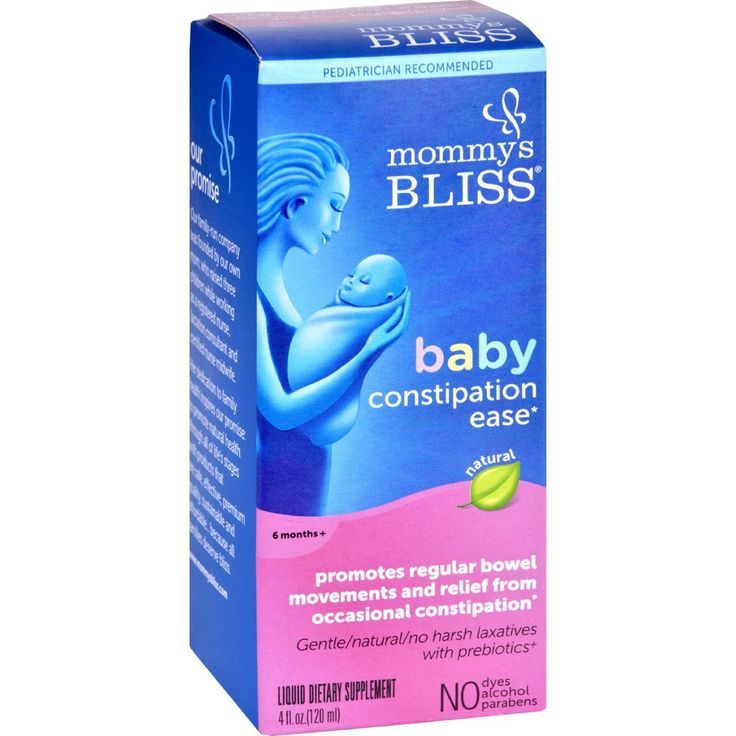 The company strives for the unification of its products, recognition not only within Russia.
The company strives for the unification of its products, recognition not only within Russia. - Bibikol is a German manufacturer using New Zealand raw materials for the manufacture of baby food. It is in these parts that valuable goat milk is obtained, as animals eat fresh grass all year round. The company does not offer combined feeds, it does not contain GMOs, fragrances, additives.
- Humana is the only manufacturer whose entire production process takes place in Germany. The raw material used is milk only from the family farms of the city of Herford. A safe composition, a wide range have earned the trust of millions of customers.
- Similac is a well-known baby food brand owned by the American company Abbott. It occupies a leading position in its market segment. The composition of infant formulas is maximally adapted to breast milk, which protects the fragile digestive system from disorders.
- Friso is a Dutch company with over 19,000 organic baby food farms.
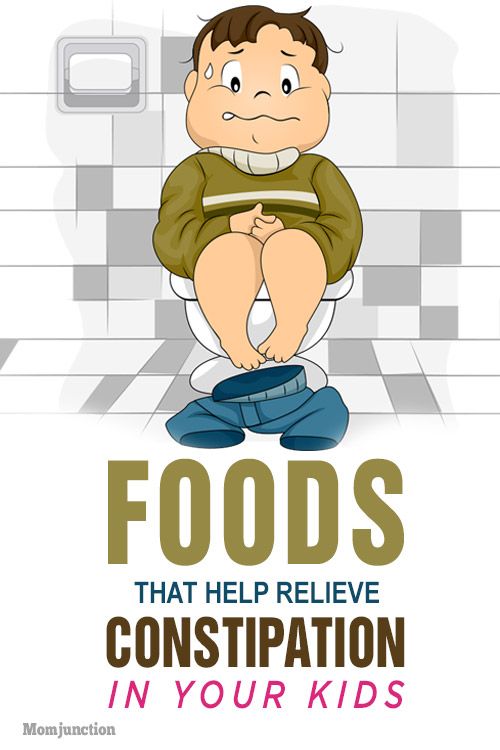 Experience has exceeded 130 years. The Queen of Holland awarded the company with royal status. Each product contains the optimal combination of key nutrients for the immunity of the baby.
Experience has exceeded 130 years. The Queen of Holland awarded the company with royal status. Each product contains the optimal combination of key nutrients for the immunity of the baby.
Constipation and colic mixture rating for newborns
After reliable baby food manufacturers have been identified, it is possible to proceed to the definition of criteria by which they were awarded the top list. Initially, the opinions of leading pediatricians helped determine the list of contenders for the title of the best mixtures for constipation and colic for newborns. Further, the experts relied on the following evaluation criteria:
- Type - milk with gum, lactulose, adapted, sour milk;
- Composition - split proteins, dietary fiber, vitamins, prebiotic, probiotic, etc.;
- Indications - individual physiological characteristics of the baby's body;
- Age restriction - the number "1" means up to six months;
- Safety - no GMOs, vegetable oils, flavors, flavor enhancers;
- Rules of application - cooking method, packaging consumption;
- Storage - shelf life, preservation requirements.

In the course of the study, the experts also got acquainted with the opinions of parents who, on their own experience, were convinced of the quality and useful properties of various products. Based on this information, the defining strengths and weaknesses of each nominee were established.
Best Prophylactic Prebiotic Mixes for Constipation
The most important ingredient in baby food for the prevention and treatment of constipation is prebiotics. These components are aimed at softening the feces, as well as improving the intestinal microflora. Lactobacilli and bifidobacteria, natural dietary fiber will help improve its peristalsis. What mixtures are best for newborns with constipation will be prompted by a pediatrician, reviews of experienced parents and expert recommendations in the current review.
Kabrita 1 Gold
Adapted milk dry mix, the main raw material for which is goat milk from the Netherlands. Enriched with a large list of valuable components to facilitate digestion.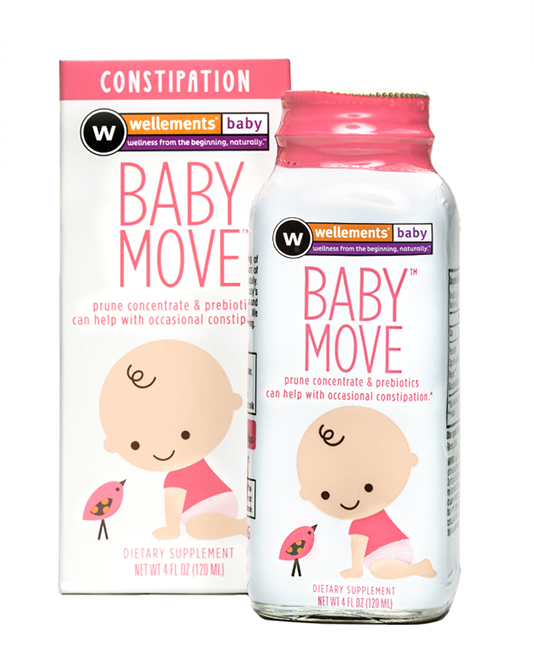 Recommended for age group 0-6 months.
Recommended for age group 0-6 months.
Goat milk is easily digestible and well tolerated. Complex of fats with beta-palmitate DigestX minimizes the risk of constipation, increases the absorption of calcium, improves energy metabolism. Prebiotics and probiotics, goat milk nucleotides and oligosaccharides strengthen the immune system, DHA (ω-3) and ARA (ω-6) support the proper development of the organs of vision and the brain.
Packing - tin can 800 g. The powder dissolves easily without lumps in boiled water cooled down to 40 degrees. The taste is delicate, soft creamy with a slight sweetness. For dosage, a measuring spoon is provided.
Advantages:
- Highly adapted blend;
- Goat milk for comfortable digestion;
- Immunity boosting ingredients;
- Easy digestion;
- Eye and brain supplements;
- Mild creamy taste;
- Good solubility, easy preparation.
Drawbacks:
- Price.
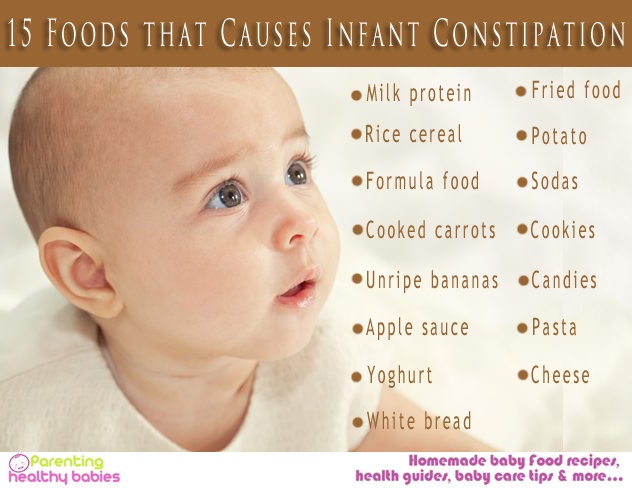
According to reviews, the product is in demand, so it is not always on sale.
Nestogen 1 Prebio
Budget product with preventive action against abdominal discomfort. It is intended for babies from the first days of life, in addition to the main function, it regulates stool, and also reduces the intensity of colic. The rich composition is a source of demineralized whey and skim milk, lactose, maltodextrin, soy lecithin, prebiotics, lactobacilli. Additional useful components are a complex of vitamins and minerals, L-carnitine, taurine to maintain immunity. Dietary fiber facilitates the process of digestion, which in turn normalizes feces. The only contraindication is hypersensitivity to the composition.
Advantages
- No palm oil;
- Multicomponent formulation;
- Prebiotics and lactobacilli for the intestines;
- Proven manufacturer;
- Pleasant taste;
- Convenient packaging;
- Inexpensive.
Drawbacks
- Likely to develop allergies;
- Inaccurate dosages in instructions.
This is one of the most popular products in its segment, which will be affordable for most buyers. Pediatricians praise the composition, parents praise the taste, supplements in the form of vitamins and minerals, convenient packaging, and the absence of palm oil. The disadvantage is inaccurate dosages for preparation; for detailed information, you will need to consult a doctor. Rarely, but still the composition causes allergies.
Agusha 1
For the still fragile gastrointestinal tract of newborns, Agusha offers a prophylactic mixture for constipation and colic. The number "1" on the package indicates that it can be used from birth. The composition of such a product does not include sugar, starch, gluten, preservatives. In addition to adapted milk raw materials, the manufacturer included prebiotics in the formula, they soften feces, improve intestinal motility and its microflora. There is also a premix of minerals, vitamins, nucleotides. A pleasant milky taste and smell will appeal to the child. On sale you can see several packs with different sizes. A contraindication is only individual intolerance to any component in the composition.
Advantages
- Thoughtful composition;
- Presence of vitamins, minerals, prebiotics;
- Pleasant taste, smell;
- Economy consumption;
- Inexpensive.
Drawbacks
- Palm oil;
- Soft impractical packaging.
Domestic products are widely used in many Russian cities as food in free dairy kitchens. This speaks volumes about its quality and reliability.
Buyers approve price, multi-ingredient enriched formulation, constipation prevention. The downside is the presence of palm oil, impractical soft paper packaging.
Bibikol Nanny 1 with prebiotics
When asked in the pediatrician's office how to choose a mixture for a newborn with constipation, the best recommendation would be a goat milk mixture with prebiotics from Bibikol. The first thing that it mainly differs from the previous nominees is the absence of cow's milk in the composition. It is also preferred by many parents, because it is an absolutely hypoallergenic product. It does not contain synthetic additives, palm oil, all components are 100% natural. To prevent stagnant processes in the intestines, Bibikol Nenni 1 includes a unique complex of Orafti prebiotics. On sale you can see two volumes of cans - 400 and 800 g. Casein shows a good percentage of fat content, high bioavailability, and excellent tolerance by the body. To support digestion, the complex contains maltodextrin, oligofructose, inulin, macronutrients, oils, vitamins and fatty acids. Suitable for children with dyspeptic disorders.
Advantages
- Goat milk;
- Only natural ingredients;
- Hypoallergenic;
- Source of valuable nutrients;
- Elimination of dyspepsia syndrome;
- Ease of preparation.
Drawbacks
- Price;
- Need to drink because of the high fat content.
Quality nutrition that relieves constipation in newborns, does not cause allergies and is suitable for children with milk protein intolerance. Buyers in the minuses mark the price above the average level, but are willing to pay for a 100% natural composition without synthetic components. It is important to consider that due to the high fat content, Bibikol requires drinking water.
The best fermented milk mixtures for constipation and colic for newborns
Constipation in infants is not usually treated with drugs, in rare cases, the doctor prescribes a drug for colic. To avoid risks, it is worth reviewing the diet of the baby. In addition to breast milk, there are many adapted feeds with valuable additives. For example, fermented milk mixture for newborns with constipation and dyspepsia with prebiotics, probiotics, lacto-, bifidobacteria. Based on the opinions of pediatricians, parents' reviews, manufacturers' guarantees, experts named the best fermented milk products from 0 months.
Humana anti-colic
The manufacturer has its own patented formula of natural milk fats with a high content of β-palmitate. Due to this, calcium soaps will not form in the baby’s intestines, which is why constipation actually occurs. Apply a mixture of Humana Anticolic in the case of diet therapy or for the prevention of intestinal colic. Carton packs contain a white powder with a pleasant milky odor for dilution in boiled water at 70 degrees. Compared to many baby products, Humana Anticolic contains 20 times less lactose. Pediatricians note easy digestibility, bioavailability of valuable substances in the composition.
Advantages
- Natural prebiotics, probiotics;
- Convenient packaging;
- Minimum amount of lactose;
- Gluten free;
- Pleasant taste, aroma;
- High bioavailability.
Drawbacks
- Price;
- Individual intolerance is possible.
Numerous reviews of parents confirm that the mixture really helps with digestive disorders, dyspepsia. The main thing is to cook according to the instructions in the instructions. The product received high marks for its safe composition, non-GMO, gluten, low lactose content. The downside was the price is above average, the likelihood of allergies.
Nan 1 Sour milk
The next position in the list of recommendations on which mixtures are best for newborns with constipation and intestinal disorders is Nan 1 fermented milk product from the first days of life. The great demand for it is due to the multicomponent composition and the large volume of the can. Whey protein is added in the amount of 70%, there are also linoic and alpha-linoic acids, fat, lactose, starch, maltodextrin. Additional valuable components are a culture of bifidobacteria and thermophilic bacteria, a complex of vitamins, minerals, niacin, carotenoids, pantothenic, folic acid. Such a set provides improved protein digestion, protection of microflora from dangerous microbes, and improvement of its composition. Can be used as a supplement to breastfeeding, artificial feeding.
Advantages
- Probiotics, vitamins, minerals;
- Adapted formula;
- Easy absorption;
- Normalization of the digestive tract;
- Pleasant taste, smell;
- Practical packaging.
Drawbacks
- Price;
- Difficulty dissolving in water.
According to most buyers, this is a good mixture for constipation, which children eat with great pleasure. It facilitates the work of the digestive organs, so that babies sleep better at night. So far, there have been no cases of allergy development, which confirms the literacy of the composition. The downside is the price, the formation of lumps due to difficulties with dissolution.
Similac Comfort 1
Another popular, according to the reviews, mixture for colic for newborns, which does not contain palm oil. It contains useful substances for the digestive system - protein, prebiotics, bifidobacteria, oligosaccharides. Additionally, the manufacturer included vitamins, minerals, nucleotides, carotenoids. The manufacturer recommends it primarily for children with functional disorders of the gastrointestinal tract. Clinical studies confirm that already after the first day of using Similac Comfort 1, the symptoms of dyspepsia are reduced by 20%. Sold in practical tins with a special measuring spoon. A moderate amount of lactose suppresses excessive gas formation. The powder dissolves well in water and is easily absorbed by the body.
Advantages
- No palm oil;
- Good curative effect;
- Nutritional composition;
- For children with intolerance to cow's milk;
- Practical packaging;
- Easy to prepare.
Drawbacks
- Price;
- Coconut oil.
This brand was one of the first to appear on the Russian market, over the years it has earned great confidence from buyers and pediatricians.
Composition, therapeutic properties, nutritional value and the fact that the food is excellent for children with cow's milk intolerance are highly valued. The only downside is the price, coconut oil is in the list of ingredients.
Friso VOM 1
Completes the review of the Dutch product, intended specifically for children prone to regurgitation, dyspeptic disorders. The composition contains skim milk, milk demineralized whey, lactose, maltodextrin, galactooligosaccharides, valuable vitamin D3, fish oil, D-biotin, minerals. Carob gluten, as a source of natural dietary fiber, thickens food, preventing regurgitation. Prebiotics are present to improve metabolism, protect the digestive organs. The powder is packaged in a tin can with a measuring spoon. It tastes delicious, almost not sweet thick substance, reminiscent of heavy cream. This is important to consider when choosing a pacifier, otherwise a too narrow passage will make feeding difficult.
Advantages
- Multi-component formulation;
- Dietary fiber;
- Relief from regurgitation, stool disorders;
- Good tolerance;
- Nutrition;
- Delicious thick texture.
Drawbacks
- Price;
- Difficulties in cooking.
Reviews confirm the real therapeutic effect, the normalization of the stool, the absence of the problem of regurgitation. Pediatricians praise the composition, the presence of important vitamin D3 in the composition, which prevents rickets and other diseases. They also note good tolerance, excellent taste. The downside is the difficulty of cooking, as well as the price.
What is the best mixture for constipation and colic for newborns to buy
When asked which mixture to choose from birth to protect the baby's body from dyspeptic disorders, a pediatrician should give recommendations. Much also depends on the individual characteristics of the digestive system. Someone is contraindicated for lactose, someone does not tolerate cow's milk, etc. What to buy is determined by the parent himself, and based on an expert review, the following conclusions can be drawn:
- Kabrita 1 Gold is a breastfeeding food for the age group 0-6 months based on goat's milk with valuable additives.
- Nan 1 Sour-milk - feeding, the most adapted to breastfeeding;
- Friso VOM 1 - anti-reflux action, thick consistency;
- Humana anti-colic - a patented formula with high bioavailability;
- Nestozhen 1 Prebio - the best value for money;
- Agusha 1 - people's choice, the most purchased product;
- Bibikol Nanny 1 with prebiotics - for children with intolerance to cow's milk.
Infant formula against dyspepsia and difficulties with defecation necessarily contains prebiotics, probiotics, valuable bacteria to normalize the intestinal microflora. Only in this case, it will not only saturate the body, but also help the digestive tract with its tasks.





